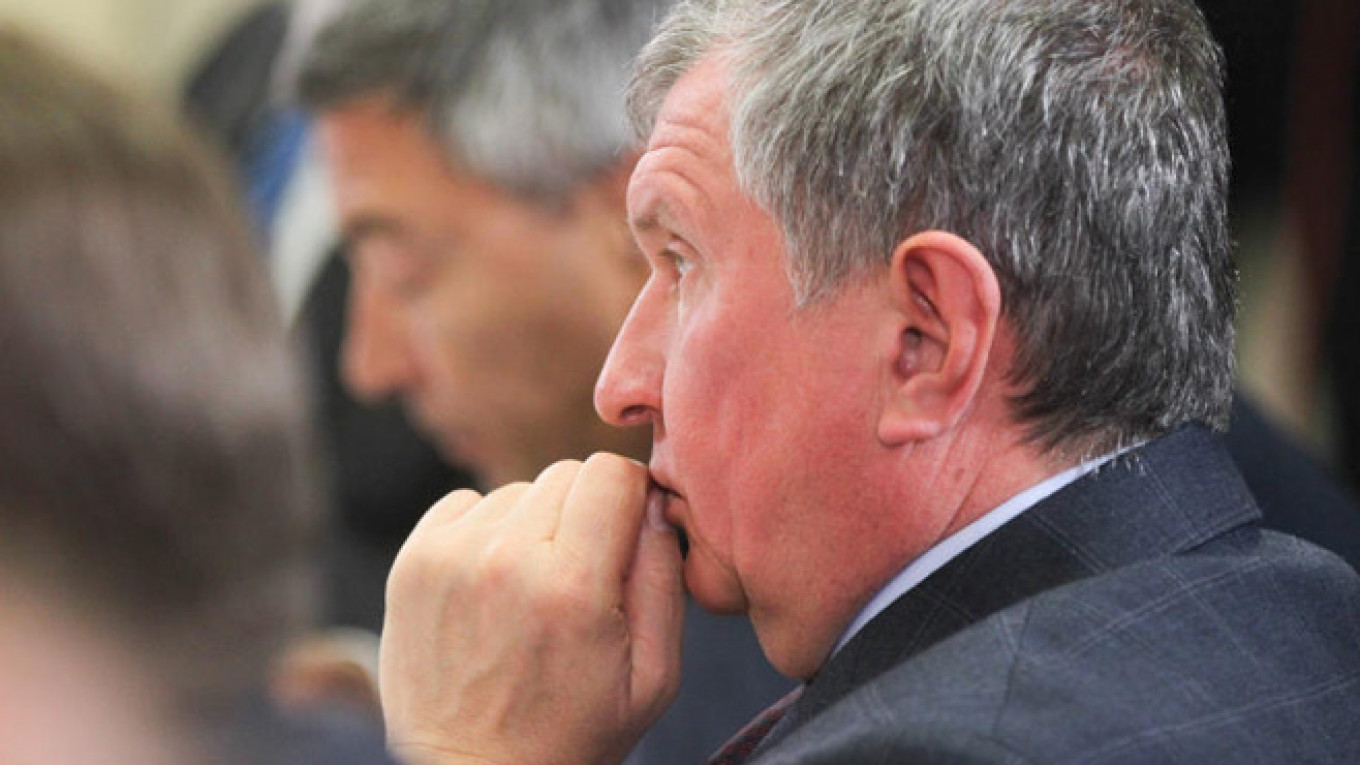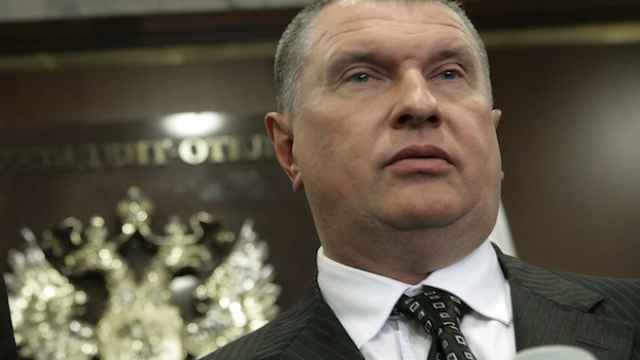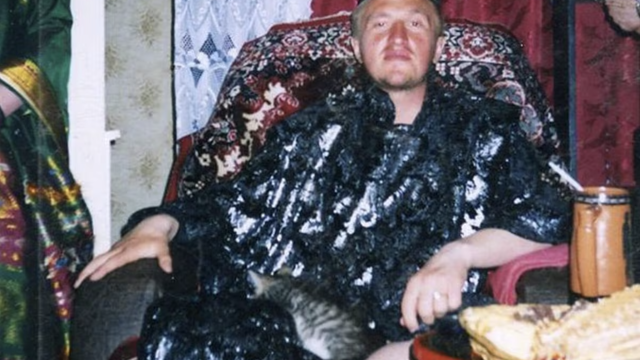Russian state oil giant Rosneft on Monday published the income of its top managers, including company head and Kremlin heavyweight Igor Sechin.
State company bosses, who are widely believed to be immensely wealthy, have rebelled against revealing their incomes, with Sechin successfully suing the Russian edition of Forbes two years ago for estimating his paycheck at $50 million.
Monday's disclosure was still incomplete.
Rosneft said in a press release that the company's 13-strong executive body last year earned a total of 2.8 billion ($45 million), but did not provide any breakdown of who took what.
If the pay pot were divided equally, each manager would have earned 215 million rubles ($3.4 million) last year. Rosneft, Russia's biggest oil firm, said remuneration was comparable with global oil industry pay levels. Sixty percent of the earnings were issued in bonuses.
Exxon Mobil CEO Rex Tillerson in 2013 earned $28.1 million, while BP's Bob Dudley received around $14 million.
"Obviously, the whole mad hype about Rosneft salaries has turned out to be a big nothing," Rosneft communications chief Mikhail Leontyev told Kommersant FM radio.
The only concrete figure assigned to Sechin, a former government aide to President Vladimir Putin, was the 2.97 million rubles he received from energy company Inter RAO, where he sits on the board. And "this entire sum was donated to charity," the press release said.
Many believe Russia's top state functionaries have amassed vast wealth over the past two decades. Russian Railways chief Vladimir Yakunin is said by anti-corruption activist and politician Alexei Navalny to own a palatial villa outside Moscow with a climate-controlled storehouse for fur coats. William Browder, a former investor in Russia who fell out with the authorities, told U.S. broadcaster CNN on Sunday that Putin himself has a fortune of $200 billion.
The government has recently pushed for greater transparency. Officials already disclose their earnings, and legislation was tightened last year to oblige heads of state companies to do the same. Skeptics say the published figures represent only official incomes and do not tally with officials' posh lifestyles and the value of the properties they own.
Contact the author at p.hobson@imedia.ru
A Message from The Moscow Times:
Dear readers,
We are facing unprecedented challenges. Russia's Prosecutor General's Office has designated The Moscow Times as an "undesirable" organization, criminalizing our work and putting our staff at risk of prosecution. This follows our earlier unjust labeling as a "foreign agent."
These actions are direct attempts to silence independent journalism in Russia. The authorities claim our work "discredits the decisions of the Russian leadership." We see things differently: we strive to provide accurate, unbiased reporting on Russia.
We, the journalists of The Moscow Times, refuse to be silenced. But to continue our work, we need your help.
Your support, no matter how small, makes a world of difference. If you can, please support us monthly starting from just $2. It's quick to set up, and every contribution makes a significant impact.
By supporting The Moscow Times, you're defending open, independent journalism in the face of repression. Thank you for standing with us.
Remind me later.






